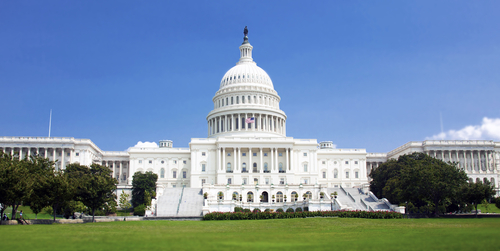The House Repeal Bill (AHCA) Will Harm People Living With HIV By Undermining Affordable Private Insurance While Weakening Medicaid
A Statement from Federal AIDS Policy Partnership (FAPP).

- FAPP One Pager pdf
We have made significant progress in our nation’s response to the HIV epidemic, progress that is in jeopardy if we roll back insurance coverage and consumer protections for people living with HIV. The Centers for Disease Control and Prevention announced in February, 2017 that HIV infection rates had declined 18% in the last 6 years. 1 The American Health Care Act (AHCA) would stop and risk reversing this progress by making insurance less affordable and less accessible, particularly for low-income people with chronic conditions.
The AHCA would cause millions of Americans to lose their health care. The Congressional Budget Office estimates that by 2026, 24 million people would lose coverage through the AHCA’s elimination of the individual mandate, changes to the private insurance subsidy structure, and Medicaid funding cuts. In Medicaid alone, 14 million beneficiaries would lose coverage by 2026.2 This would include tens of thousands of people living with HIV who gained insurance through the Affordable Care Act. The Ryan White Program is a discretionary program that is a payer of last resort and primarily covers HIV care and treatment for low-‐income individuals. It is not health insurance. The Ryan White Program would be unable to fill the gap that decimating Medicaid would leave.
The AHCA would eliminate the Medicaid expansion and shift billions of dollars of costs to states. Medicaid is a lifeline to care for 42% of people living with HIV. 3 The AHCA would threaten the ability of Medicaid to provide care and treatment to this population by putting in place a per capita cap funding structure estimated to result in an $880 billion shift of Medicaid costs to states over the next decade. State Medicaid programs already operating under constrained budgets will simply be unable to continue providing care and treatment to the millions of vulnerable individuals who depend on this program. In addition, eliminating the Medicaid expansion means going back to cruel pre-‐ACA rules where people living with HIV must be diagnosed with AIDS and thus, disabled by the disease, to be eligible for the program.
The AHCA would make health insurance less affordable for low-‐income people, older people, and people living with chronic conditions. The AHCA reduces the amount of premium tax credits people will receive to purchase private insurance by an average of $1,700.4 This hardest hit are low-‐income and older individuals. The Kairos Center estimates that nearly 48% of Americans live on incomes just twice the federal poverty level. The CDC estimates that 40% of people living with HIV have incomes at or below the federal poverty level. The AHCA would no longer take income or regional differences into account in calculating eligibility for premium tax credits, meaning that the people least likely to be able to afford insurance costs will now get less help. In addition, the bill would allow insurers to charge older people even more in premiums by relaxing age rating protections. At the same time, the AHCA eliminates the current structure of federal cost-‐sharing reductions as well as the actuarial value protections that require plans to pay for a certain percentage of a consumer’s health care costs. This means that people living with HIV and other chronic conditions will pay more for a plan that covers less and has higher consumer cost sharing. Affordability has been essential to providing not only insurance coverage but also meaningful access to care and treatment. Failure to ensure that people living with HIV have access to the care and treatment they need to stay healthy will result in worse health outcomes, missed opportunities for prevention, and increased health care costs.
The AHCA’s continuous coverage requirements would disproportionately harm people living with chronic conditions. Under the AHCA, any person who has a lapse in coverage of more than 63 days will be subject to a 30% premium surcharge. This will make it extremely difficult for people with pre-‐existing conditions, who may have unavoidable gaps in coverage as a result of these conditions, to re-‐enter coverage. This requirement may also drive up health care costs by discouraging younger, healthier people from reentering the health care market until a change in health status compels them to do so.
The AHCA would erode benefits protections that ensure that coverage meets HIV care and treatment needs. The AHCA eliminates the Essential Health Benefits requirements for Medicaid expansion plans. The Essential Health Benefits, which include prescription drug coverage, mental health and behavioral health services, and preventive services (including routine HIV screening), have been vital to ensure that Medicaid and private insurance alike provide essential care and treatment.
The AHCA would cut critical public health funding through elimination of the Prevention and Public Health Fund and the de-‐funding of Planned Parenthood. The Prevention and Public Health Fund has provided significant support to build local capacity to detect and respond to infectious diseases, such as hepatitis C and HIV, and other public health threats. Abandoning this critical investment will set back public health and security. In addition, Planned Parenthood offers people of all genders essential sexual health services, including STD screening and treatment, HIV and hepatitis C testing and linkage to care services, and HIV preventative services, like HIV pre-‐exposure prophylaxis (PrEP) and condoms. Planned Parenthood clinics are the sole source for HIV and hepatitis C testing in some rural communities.
Any changes to the Affordable Care Act and Medicaid must preserve access to affordable care and coverage for people living with HIV and other chronic conditions and ensure continued consumer protections from discriminatory insurance practices.